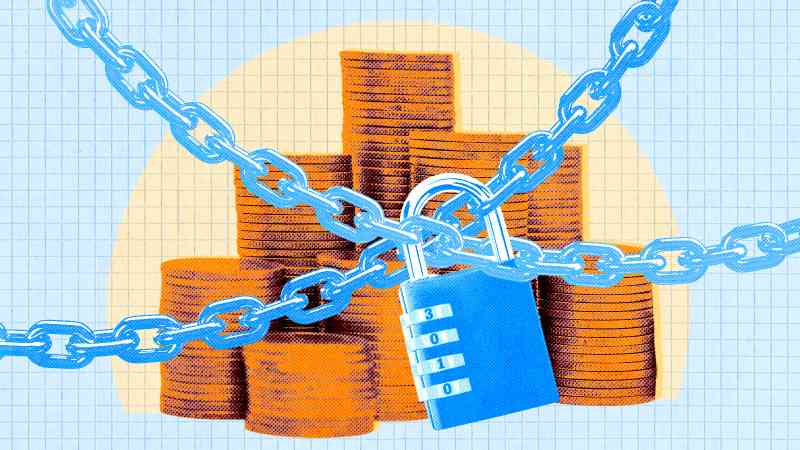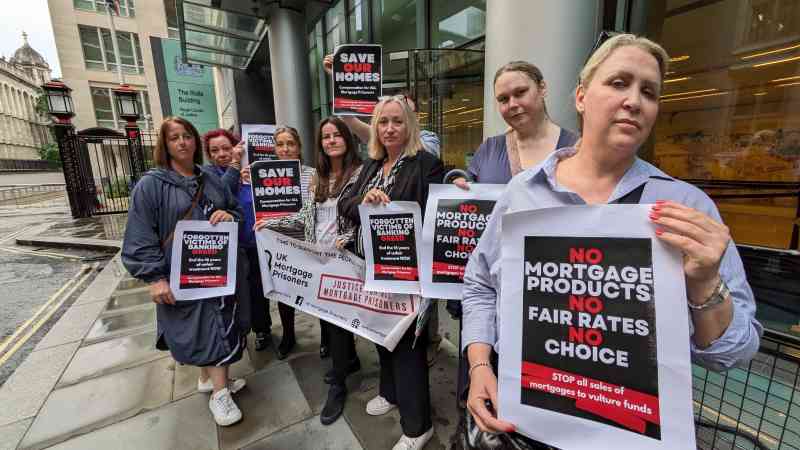How to teach my 11-year-old niece about money? I got her a house
Most people who want to teach their children about the value of money might open a bank account for them or start paying them to do chores. When TJ Atkinson decided it was time his niece learnt about money, he bought her a house.
Atkinson, 38, who is a financial coach and property investor, has bought a buy-to-let property for 11-year-old Savanna and is teaching her how to be a landlord.
“I grew up relatively poor and missed out on many opportunities because my parents didn’t have the money,” he said. “I don’t have my own children so I want to make sure my nieces have the freedom to pursue life and things that make them happy without having to worry about money.”
Atkinson bought the three-bedroom house in Brandon, County Durham last year for £58,000 and encouraged Savanna to get involved in the renovations. Together they chose paint for the walls, picked out a new kitchen and bathroom, and employed a builder to convert original bathroom into a fourth bedroom.
Atkinson gets £700 a month rent for the property and puts the profits — about £300 a month after mortgage and insurance costs — into a general investment account, which he plans to split between Savanna and her sister, Scarlett, seven, when they are older. He has £1,200 saved and hopes it will grow to £40,000 by the time Savanna is 18.
At this point Savanna will legally be able to take over ownership of the house and Atkinson will give his niece the choice of what to do with it: sell up, move in or take over as landlord.
• I want to be a landlord, can I get a mortgage?
“I hope she decides to take over and keep the rental income, but it’s my responsibility to help her come to a decision over the next eight years,” Atkinson, who lives in east London, said. “If she decides to sell, I won’t give her the property. It will mean I haven’t been able to educate her about creating wealth.”
Savanna has enjoyed the experience and Atkinson will be relieved to hear that she wants to keep her property when she turns 18. “I can keep getting rent and I can save that money,” she said. “I like designing and choosing colours,” she said. “I haven’t enjoyed sticking to a budget. I’m not a fan of maths — sometimes I want to spend more than I’m allowed. I’ve learnt that things are more expensive than you think.”
Generation generous
Families are giving more money to their young relatives than ever before. Some £13.2 billion was given to friends and family in 2019-20, according to the most recent figures from the Institute for Fiscal Studies, up from £6.4 billion in 2009-10.
The most common reason to give money is to help younger family members to buy a home. It’s estimated that families gave or lent relatives £8.1 billion for home purchases in 2023, said the insurer Legal & General, up from £5.44 billion in 2020.
While getting money for a house deposit, or even being given an entire house, might sound like the stuff of dreams for many young people, experts say there are some key pitfalls to be aware of.
Kirsty Stone from the financial advice firm the Private Office said: “I have seen occasions where parents will buy a property for their children or gift money but stipulate it is put towards buying a house.
“But generous relatives must bear in mind that being a landlord is more of a burden than it’s ever been, and there are serious tax implications to consider too.”
• Can I pay my son’s mortgage without getting an inheritance tax bill?
The pitfalls for you
If you are purchasing a buy-to-let but already own another property, you will have to pay an additional 3 percentage point stamp duty levy. So, where you would usually pay 5 per cent stamp duty on a home worth between £250,001 and £925,000, a second homeowner would pay 8 per cent.
If you are buying a rental property for a younger relative, you will need to assume landlord responsibilities until they are old enough to take over.
Consider the cost and hassle of maintaining the property, and insurance costs. Factor in void periods between tenants, and the chance of rent being late or not paid at all. “Be sure to consider the impact of interest rate changes if you are buying the property with a mortgage too,” Charlene Young from the investment platform AJ Bell said.
You will need to declare the rental income you receive through a self-assessment tax return and will be liable for income tax on it.
You may also have to pay tax when you come to sign the property over to your child. Capital gains tax (CGT) is a levy paid on profits made from the sale of most assets worth more than £6,000, including property if it is not your main home.
Basic-rate taxpayers pay 18 per cent on gains made from property, and higher and additional-rate taxpayers 24 per cent.
That means if you bought a property for £200,000 and its value had increased to £250,000 by the time you gave it to your relative, you would be liable for CGT on the £50,000 of profit. Taking into account your annual £3,000 CGT allowance, a basic-rate taxpayer would pay £8,460 in tax and a higher-rate payer £11,280.
Watch out for inheritance tax (IHT) too. Large financial gifts are exempt from IHT as long as you live for more than seven years after you make the gift. If you die before then, the property could be considered part of your estate for inheritance tax purposes. This is charged at 40 per cent on estates valued at more than £325,000. You get an extra £175,000 allowance if you leave your main home to a direct descendant, so £500,000 in total.
Anything left to a spouse or civil partner is exempt from IHT and any allowance you don’t use can be added to your partner’s allowance when they die. This means a couple can pass on upt to £1 million IHT-free.
• A guide to buy-to-let mortgages
And the pitfalls for children
There are some generous tax breaks on offer to first-time buyers, to which your child could lose access if you give them a house.
At present first-time buyers do not pay stamp duty on properties worth up to £425,000, for example. They will not qualify for this discount if they already own a buy-to-let.
Young people can also benefit from a Lifetime Isa, which allows savers to put away £4,000 a year and get a 25 per cent bonus from the government if they use the money to buy their first home.
You could wait until your child has bought their first home before you transfer the property to them. However, they will have to pay the additional 3 percentage point stamp duty levy when they take ownership.
How else to help your child
Giving money to a child for a house deposit may be a better option than buying a property outright.
Junior Isas are a great way of building a nest egg. Once a child turns 16, they take control of the account and at 18, they can access the money, so make sure to discuss what the funds will be used for.
Only parents and guardians can open these accounts, though anyone can contribute to them — just make sure you don’t bust the limit. You can save up to £9,000 a year into a Junior Isa, and any interest earned or gains made are tax-free. There are two types to choose from: stocks and shares, or cash.
Once your child turns 18, encourage them to open a Lifetime Isa if they still want to use the money for a house in the future. You can save up to £4,000 a year tax-free into these accounts and you will get a 25 per cent bonus from the government as long as the money is used to buy a first home or withdrawn after age 60.
If you really want to think ahead you could consider saving into a child’s pension — you can pay in up to £2,880 in a tax year and this is topped up to £3,600 through tax relief. They won’t be able to access this money until age 55 (rising to 57 in 2028).
‘I don’t want to spoil them, but I want them to have freedom’
For now, Atkinson thinks his investment has been worth it. Keen to not leave his other niece out, this month he bought a buy-to-let property for Scarlett too — a two-bed house in Spennymoor, County Durham, that cost £58,500.
“I want my nieces to be financially independent when they’re older, and this is something we can bond over,” Atkinson said. “I don’t want to spoil them, but I want them to be financially educated and have the freedom to do what they want to do.”
Are you doing anything to boost your child’s wealth? Tell us more below






